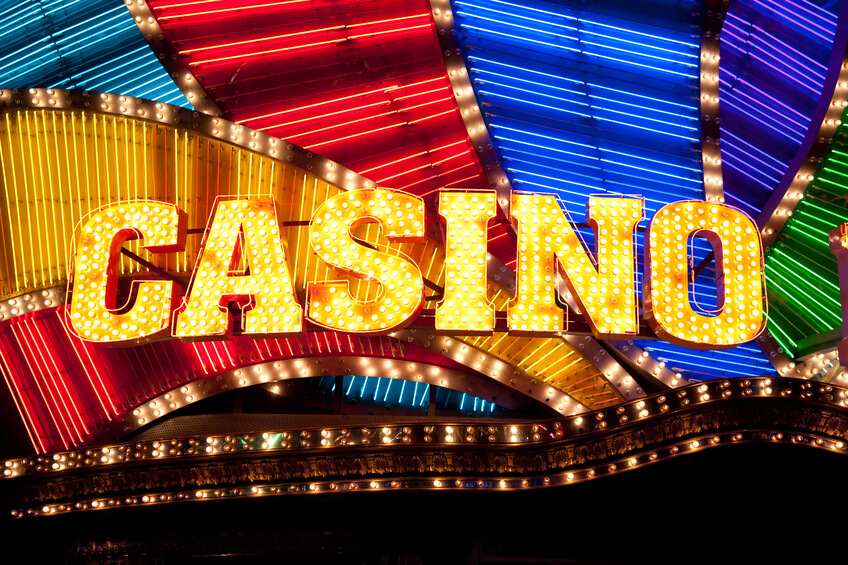
Casino entertainment have long been a fascinating entertainment option, drawing numerous of players from varied cultures around the globe. From the lively casinos of Vegas to the bustling gambling halls of the Chinese gambling capital, these games serve as a common thread that unites people across different backgrounds. The allure of fortune, strategy, and risk entices not only those looking to strike it rich but also those seeking a sense of community.
The influence of casino games extends far beyond the gaming floor. They often embody the values and traditions of the societies in which they prosper. Games such as seven-card stud, 21, and the spinning wheel have woven themselves into the mosaic of mainstream culture, influencing various aspects from cinema to style. Trang Chủ BJ88 As we explore this captivating intersection of gambling and culture, we can comprehend better how casino games shape and are affected by the environment surrounding us.
Historical Development of Casino Activities
The origins of casino games can be followed back to ancient civilizations, where gambling in various forms was widely practiced. In Ancient China, around 2300 BC, a variant of luck game known as Keno was well-known, while in historic Rome, soldiers would regularly wager on the results of their contests. The notion of using randomness for fun and income progressed over the ages, leading to the establishment of more structured activities. By the final Middle Ages, gambling houses began to appear in European nations, particularly in the Italian peninsula, which introduced early forms of well-liked activities still practiced today.
As betting increased popularity in European regions, the 17th and 18th centuries saw the rise of gaming houses as specialized venues for gaming. The initial official gambling house, the Ridotto, was established in Venice in 1638, featuring games like the game of Baccarat and Faro. This period marked a significant turning point, as gaming venues began to attract not just the high society but also the burgeoning middle-income class. The complexity of games grew, leading to the development of new regulations and versions that enriched the gaming experience.
In the 19th century, the era of industrialization and shifts in social standards also altered the environment of gambling activities. The introduction of roulette and new gaming machines pulled in a more diverse crowd, and casinos became seen as legitimate forms of entertainment. This period witnessed the globalization of gambling, as casinos expanded from the continent to the Americas, culminating in the establishment of the famous Las Vegas Strip in the 1900s. The evolution of gambling games has continued into the current era, incorporating technology and online sites, rendering them open to a universal market.
# Cultural Significance in Diverse Cultures
Casino games have significant cultural value within numerous societies throughout the globe. In Las Vegas, the very fabric of the urban landscape is woven around gambling establishments, where gaming is not just a recreational activity but a fundamental aspect of social engagement and community interaction. The bright lights and lively atmosphere attract a vast audience, showcasing how casino games can influence local economical structures and cultural identities. This setting transforms the notion of leisure into an enriching encounter that shapes style, music, and even film.
In contrast, some societies approach gambling with more caution, viewing it through the lens of ethical considerations and customs. A case in point, in numerous Eastern cultures, games like Mahjong and Pai Gow are steeped in history and carry significant social relevance. These games are often played during meetings and celebrations, fostering collective connections and reinforcing familial ties. The act of engaging in these games goes past mere amusement, reflecting principles such as honoring elders and the significance of collective enjoyment.
Meanwhile, in Western countries such as Monte Carlo and the Italian Peninsula, gambling activities serve as symbols of wealth and refinement. The elegant atmosphere of these establishments attracts both tourists and native inhabitants, upholding a sense of distinction and rarity. The art of Texas Hold’em and the strategic elements of games like baccarat are esteemed, shaping interpersonal interactions and creating an appeal that enthralls a varied audience. This highlights how gambling can simultaneously mirror and influence cultural attitudes towards risk, reward, and social interaction.
Economic Impact and Travel Industry
Casino games play a significant role in the economic landscape of many regions, particularly those that rely heavily on visitor traffic. The revenue generated from casino operations fuels local economies, creating jobs not only within the casinos themselves but also in related sectors such as hotel management, dining, and recreation. This influx of tourists, drawn by the attraction of games and the overall casino experience, stimulates spending across multiple businesses, contributing to the economic vitality of the area.
The existence of casinos often leads to the construction of infrastructure, including lodging, transportation systems, and leisure amenities. These improvements are essential in enhancing the overall tourist experience, making locations more appealing to tourists. Additionally, many casinos invest in local communities through support of events and charitable activities, further integrating themselves into the social fabric of the locality. Such investment not only supports economic growth but also fosters a positive image of the casino industry.
In addition, the global popularity of casino games drives tourism competition, with regions vying to attract gamblers from around the world. Iconic locations like Las Vegas and Macau have become synonymous with gambling culture, drawing millions annually. This competitive edge encourages innovation and variety within the gaming industry, influencing developments in leisure and accommodation that extend beyond their borders. The consequences of this tourism extend far, impacting local economies and cultural interactions on a worldwide scale.